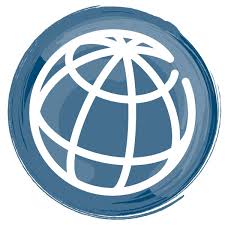A new World Bank report launched on Wednesday has identified slow business registration, a low level of electronic data processing, internet disruption, a low uptake of digitalization, and slow dispute resolution as part of challenges hampering business development in Ghana.
The World Bank Business Ready (B-Ready) Report, 2024, said these factors have made Ghana rank low in business development in 2024, compared to their peers in Sub-Saharan Africa.
Registering a new business in Ghana costs nearly 42 percent of gross national income (GNI) per capita and takes 57 days compared to just four percent of GNI and three days in Rwanda, according to the report.
Ghana scores 32/100 in market competition “held back by weak competition policies and opaque procurement systems.”
“Nearly 48 percent of Ghanaian firms report monthly internet disruptions, hindering productivity and competitiveness, and resolving a commercial case takes an average of 900 days, almost four times longer than Côte d’Ivoire, the report said.
The report, however, noted some positive cases in Ghana as well, including labor market regulation, where Ghana scores 68.6 out of 100, outpacing much of Sub-Saharan Africa’s peers in labor rights clarity, dispute resolution, and fairness.
It stressed that only Rwanda’s score of 69 in labor market regulation is only marginally higher than the situation in Ghana.
“Ghana’s score of 68.5 in access to utility services also ranks well above its peers and closes the gap on Tanzania’s 78.8 score.
“In many areas, Ghana has the regulatory framework, public services, and infrastructure to deliver a competitive business environment, but operational efficiency has lagged because of limited implementation, particularly around digitalization and inter-agency coordination,” the report concluded.
Robert Taliercio O’Brien, World Bank Divisional Director for Ghana, Sierra Leone, and Liberia, noted in his remarks that the numbers represent more than statistics. “They represent lost opportunities, constrained growth, and untapped potential.”
The good news is that Ghana is not starting from scratch. There is a solid foundation, and together, we can build on it, added O’Brien.
Elizabeth Ofosu-Adjare, Ghana’s Minister for Trade, Agribusiness, and Industry, said the B-Ready report offers Ghana a unique opportunity to address the challenges that hinder the business environment and build on its strengths.
“It is not just about improving rankings, but creating an ecosystem where businesses can thrive, where innovation is encouraged, and where every business in Ghana has the opportunity to succeed,” Ofosu-Adjare stressed.

